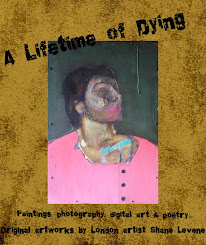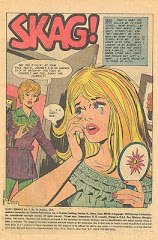I first discovered Dostoevsky just as I was getting into junk. His book Crime and Punishment, with its anti-hero Raskolnikov wandering the slums of St Petersburg, I transferred to the streets of London where I was trudging around looking for dope in a coat that no longer worked.
Whilst waiting for dealers at bus stops or down alleys, I would think of murder and morals and ethics and warmth. I was unshaven and distracted – preoccupied with thoughts of what would become of me.
Two years later, in the midst of addiction, on the needle but stable in my habit, I found Notes from Underground. I picked it up for 50p or something in a Cancer Research charity shop. I was looking for pin-striped jackets.
I am a sick man... I am a spiteful man. An unattractive man. I think that my liver hurts. But actually, I don't know a damn thing about my illness. I am not even sure what it is that hurts.¹*
And in just that opening paragraph the world seemed to make a little more sense. I somehow felt that my existence had been validated. It was the key which unlocked a certain part of me, permitted me to be able to externalize an internal dialogue I had struggled with all my life. It also set in motion a feeling of rhythm... rhythm for words and how they should be arranged and strung together. That the book was only a translation of the original didn't matter. I had never read such poetical prose before. Without one swear word, or shocking event, it felt edgy and subversive and dangerous.
I travelled centuries with Notes from Underground. Discovered a poetry within it which I had been searching out for a long time. A chain of thought that was solitary and severed from any political or social ideas that were out on offer. With Dostoevsky I lost politics and found philosophy, a more personal kind of politics with no social agenda, just ones understanding of the world and ones place within it.
Come now, can a man who has presumed to seek out enjoyment even in the very sense of his own degradation have any amount of self-respect?¹
Notes from Underground, aside from any other facet of its brilliance, is a book that constantly poses questions – important, petty, sometimes nonsensicle, often unanswerable questions. With each paragraph there is a universe of stuff to think about: an accusation, a dilemma, a lie. This book forces one to think, to delve into oneself and others. To question motives, philosophies, structures, codes. In 153 pages (a long short story by today's standards) it is an enormous work. It is a work condensed to bursting point. It is a work that can force some to pick the pen up and others to throw theirs away.
I don't profess to understand Notes from Underground, well, not as it was probably intended anyhow. But I don't think I've ever understood any artist or work of art, not really. All I understand is what the book meant and continues to mean to me, what it taught me and what it inadvertently showed me. And that was....
Well, I don't know.... I never quite figured that one out.
Read Notes from Underground here
Free e-book download: Notes from Underground
Reviews of Ginsberg's Notes from Underground
¹ Translation copyright © 1974, Mirra Ginsburg. Bantam Books.
* Ginsburg's translation is the best I have come across. In terms of the original, I can't say, but certainly as a book in English it is by far superieur to the free download.


























































